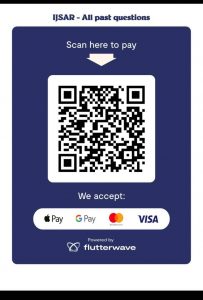NIPR Exam Past Questions and Answers | PDF Download (Latest Edition)
NIPR Exam Past Questions and Answers: Are you preparing for the NIPR Examination and want to pass with confidence? This article provides essential information on the NIPR Exam Past Questions and Answers PDF, including the exam format and sample questions. You can also learn how to download the latest verified version for 2025. Over 80% of the actual exam questions are based on these past questions.
About the NIPR Examination
The Nigerian Institute of Public Relations (NIPR) regulates public relations in Nigeria. To become a certified member, candidates must pass the NIPR professional examination, available at three levels: Foundation, Intermediate, and Professional Diploma. The exam tests knowledge of public relations principles, ethics, communication theories, media relations, and management skills. Using verified NIPR Past Questions and Answers PDF can improve candidates’ chances of passing on their first attempt.
NIPR Exam Format and Structure
The NIPR exam consists of various levels, which are determined by your qualifications.
-
Foundation Level – For new entrants and graduates of other disciplines
-
Intermediate Level – For those who have completed the foundation course
-
Professional Diploma Level – For advanced candidates and practitioners
Across all levels, you’ll encounter questions from the following key areas:
-
Introduction to Public Relations
-
Communication Theories and Models
-
Public Relations Practice and Management
-
Media and Public Affairs
-
Marketing and Advertising
-
Public Relations Research and Evaluation
-
Ethics and Law in Public Relations
Each assignment evaluates your understanding of both theoretical and practical applications in public relations and communication management.
